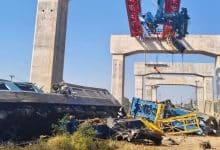CKP and BEM partner for Thailand’s first solar-powered mass transit rail

CK Power Plc (CKP) Bangkok Expressway and Metro Plc (BEM) have forged a partnership to bring the first solar-powered mass transit rail systems to Thailand. The collaboration aims to utilise solar energy to power the MRT Chalerm Ratchamonkol Line (MRT Blue Line) and the MRT Chalong Ratchadham Line (MRT Purple Line) which, combined, span over 71 kilometres and have 54 stations across Bangkok and Nonthaburi.
The solar transit partnership entails that 452 gigawatt-hours (GWh) of power will be supplied to the two MRT lines over up to 25 years. The amount equates to 12% of the total anticipated power consumption of the lines, according to CKP managing director Thanawat Trivisvavet.
CKP will bring in engineering expertise for system design, installation, and construction, along with comprehensive post-installation maintenance services. This solar transit railway project is expected to be ready for expansion. The design work is set to be completed by January next year, with construction beginning in February of the same year. The first delivery of electricity under commercial operations is slated for August next year, with various other phases commencing through February 2025.
Thanawat made known that this is the first time solar energy will be used to power a Thai mass transit system on such a large scale.
“We are proud to pioneer new uses for solar energy in Thailand, and our partnership with BEM will make an important contribution to increasing the use of renewable energy sources.”
BEM’s managing director, Sombat Kitjalaksana, reiterated the company’s commitment to supporting Thailand’s transition to clean energy in line with the national goal of achieving net zero greenhouse gas emissions by 2065.
“Under this arrangement, we can eliminate 300,000 tonnes of carbon emissions over the project period, and help us to reduce our power costs as well.”
The agreement stipulates that six locations, totalling over 106,000 square metres and including the roofs of rail depots, car parks, and office buildings of the two MRT lines, will be used to harness solar energy reported Bangkok Post.
Thanawat highlighted the potential of the CKP-BEM partnership to catalyse Thailand’s transition to renewables if other mass transit systems adopted similar strategies. He cited the German rail system as an example, being the country’s largest user of renewable power.
This solar transit initiative aligns with CKP’s three-year goals, established early last year, to double its generating capacity from 2,000 megawatts to 4,800MW by next year. All the incremental capacity will be based on renewables such as solar, wind and hydro.
Among Thailand’s large power producers, CKP has the highest proportion of renewables-based power generation capacity, at 93% of installed capacity.
Follow The Thaiger’s latest stories on our new Facebook page HERE.
Latest Thailand News
Follow The Thaiger on Google News:


























